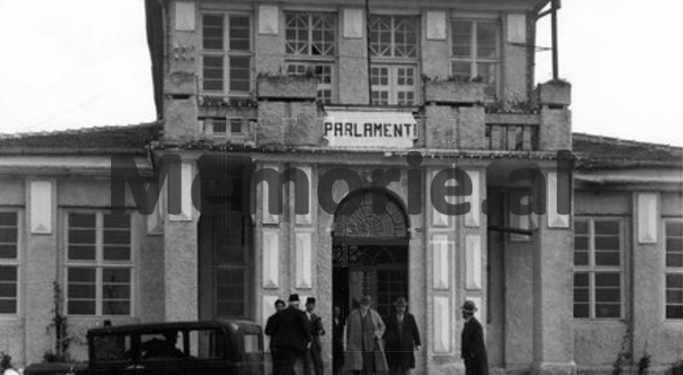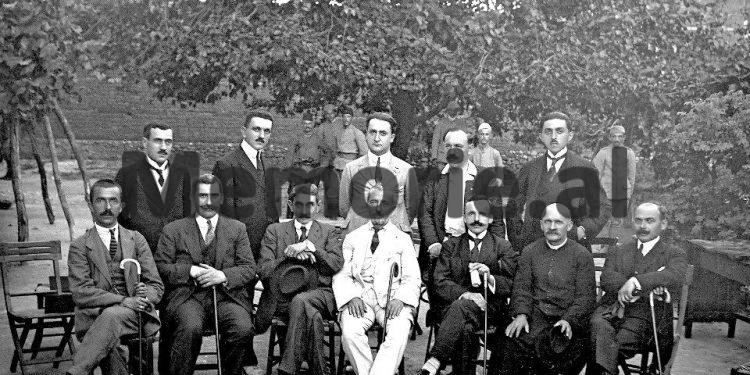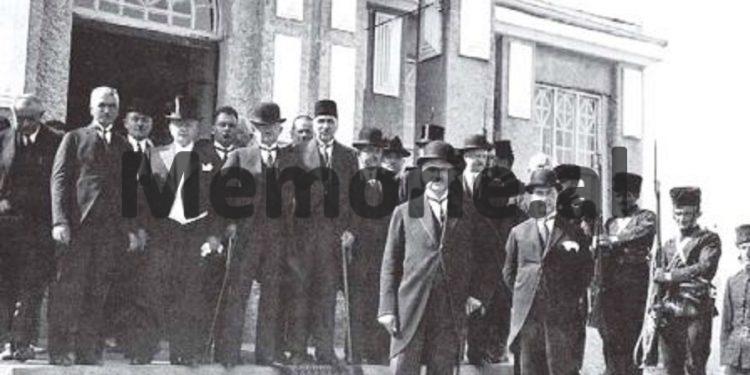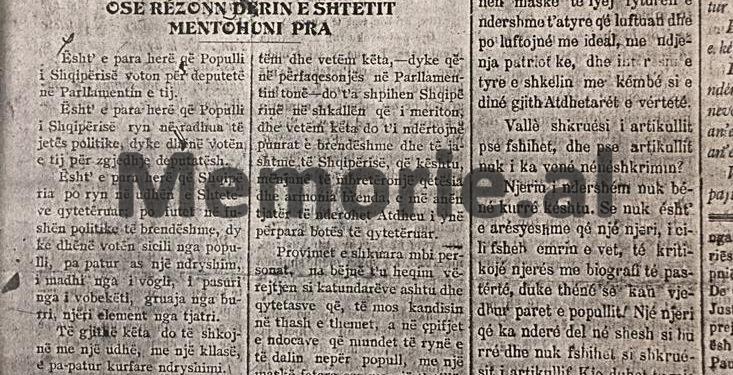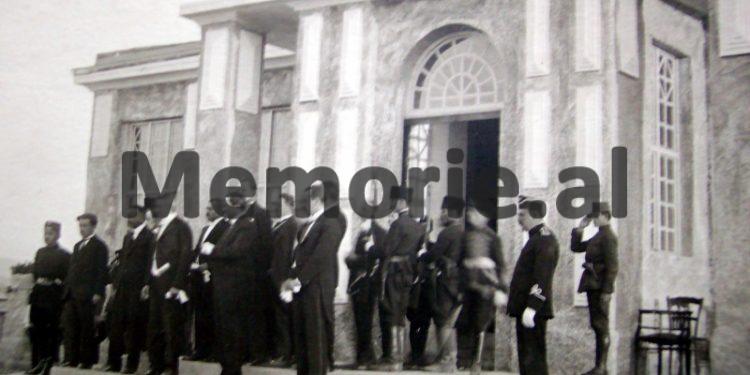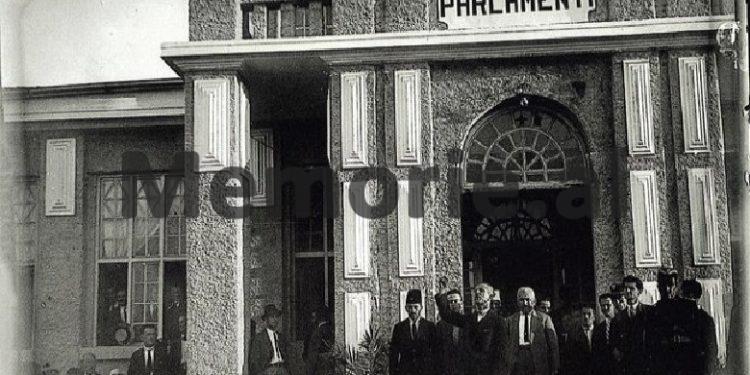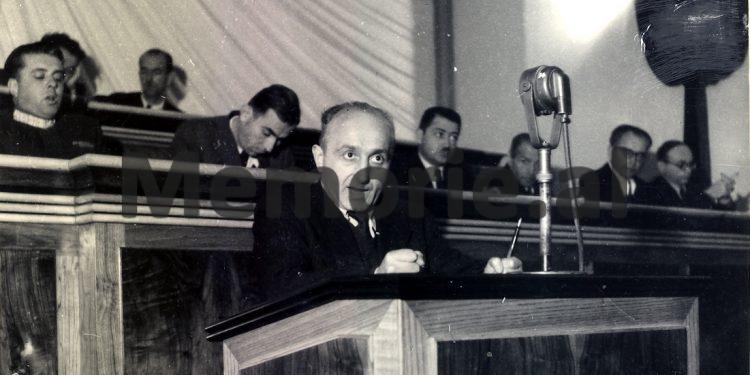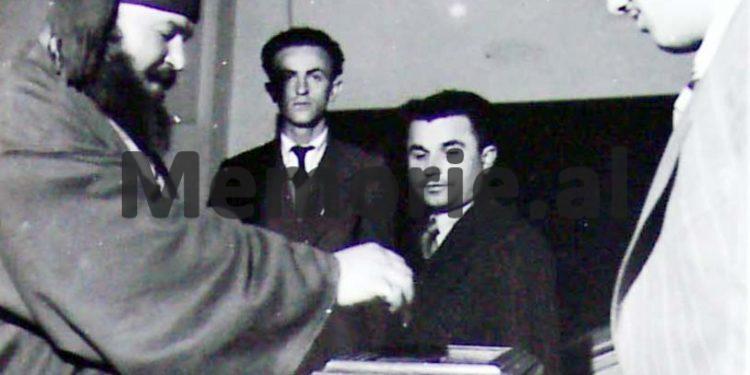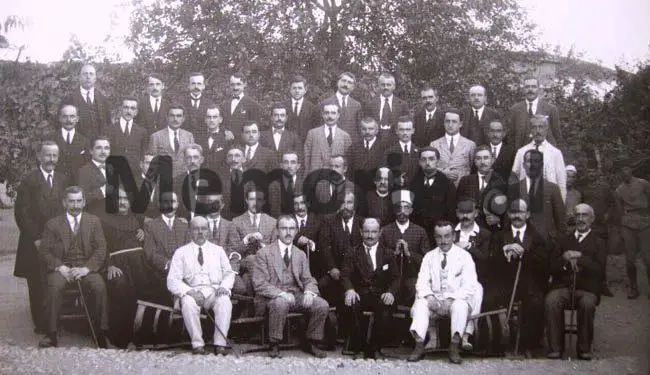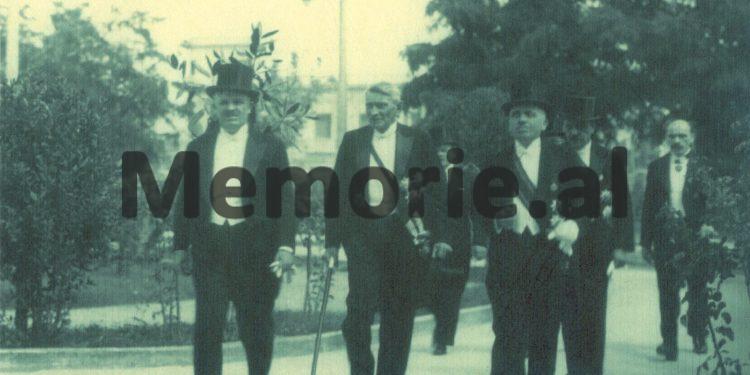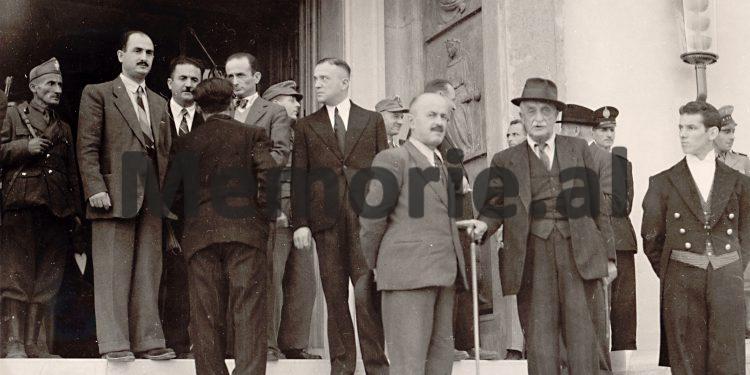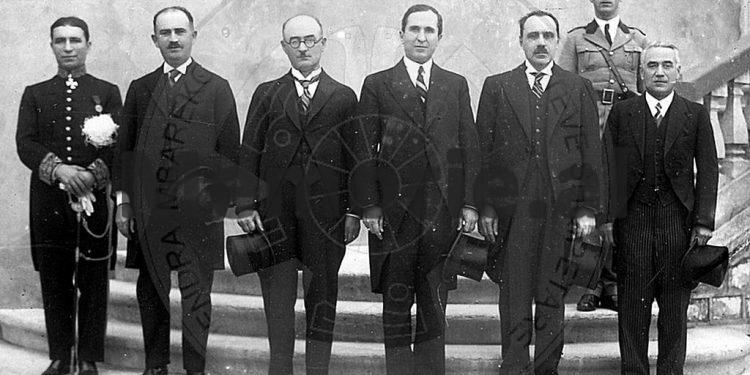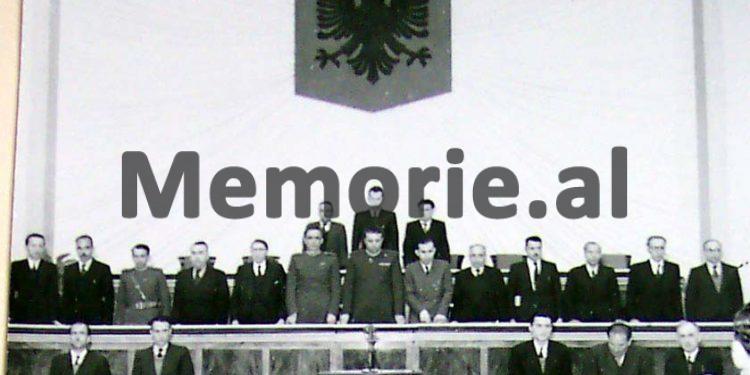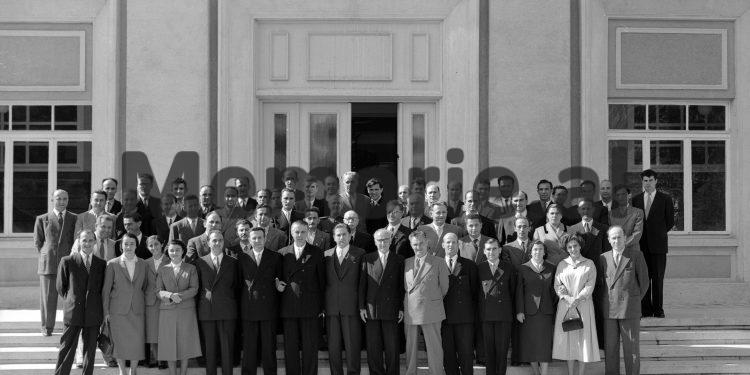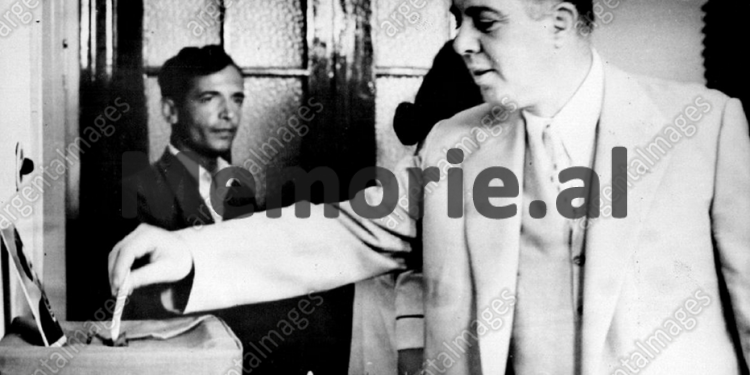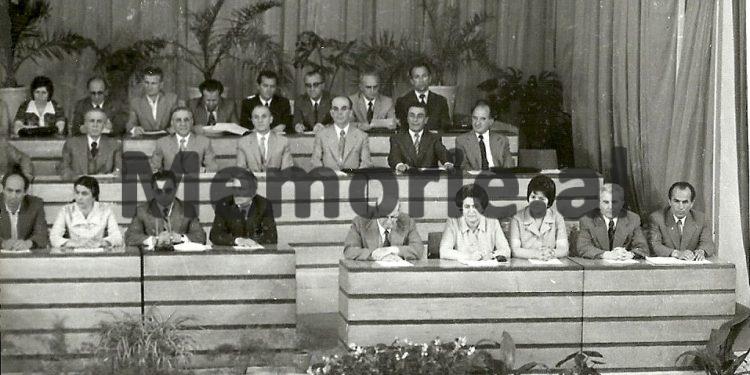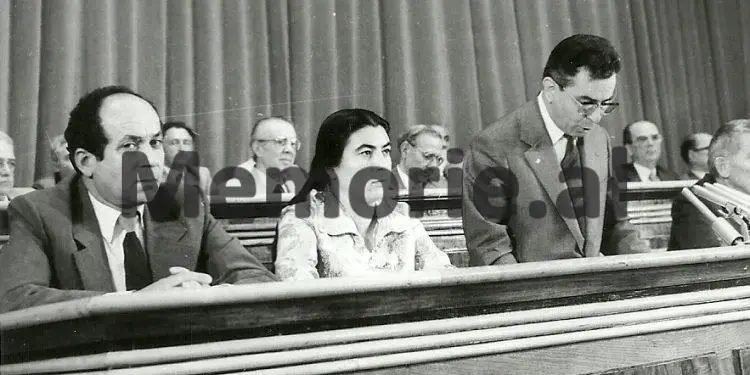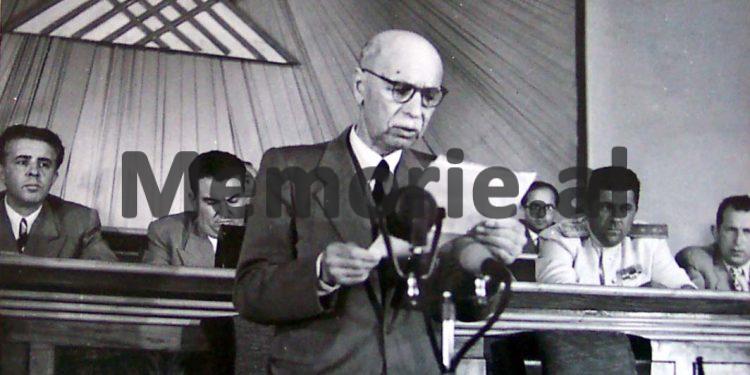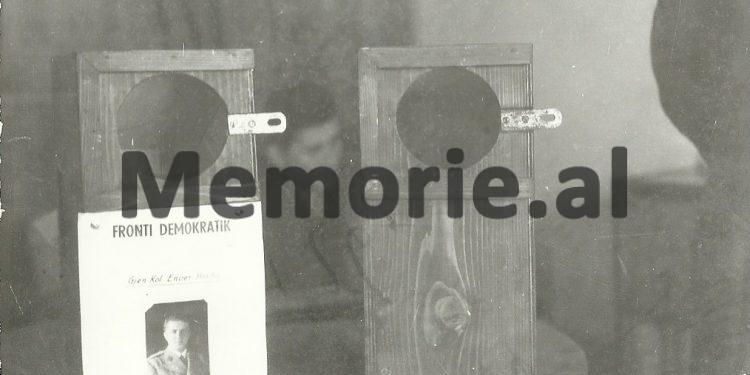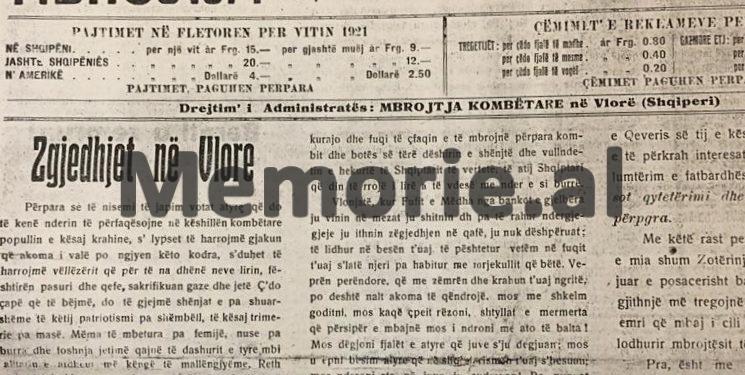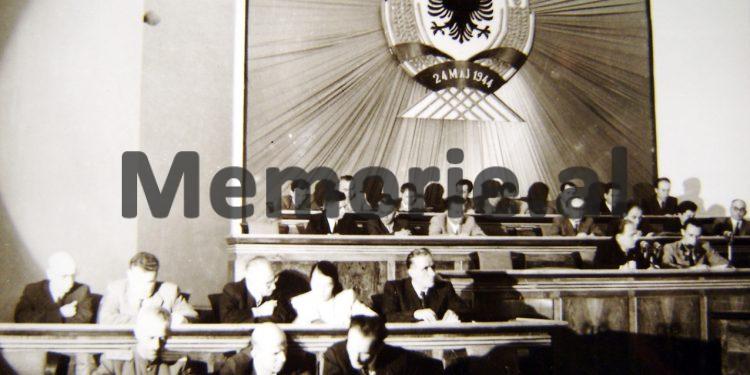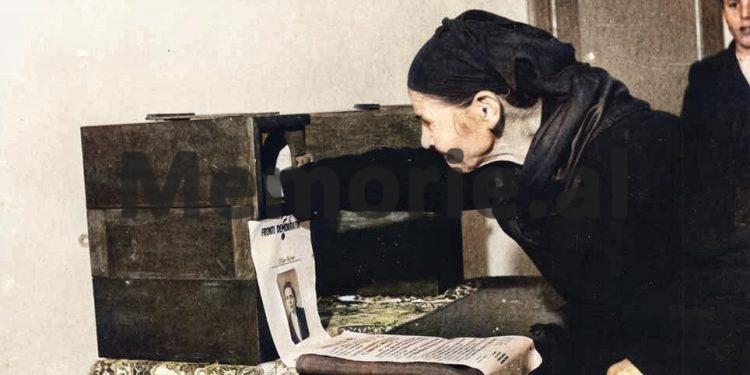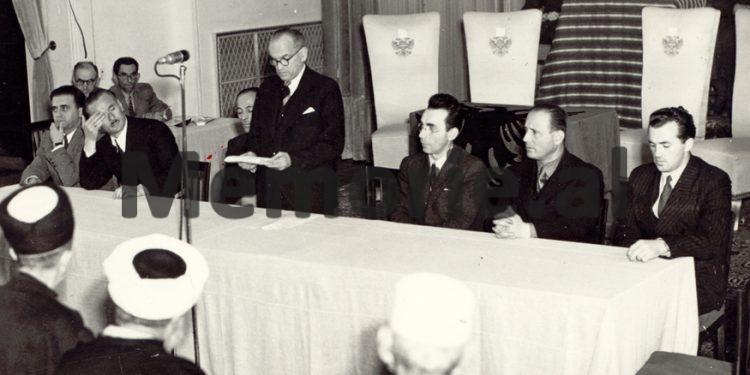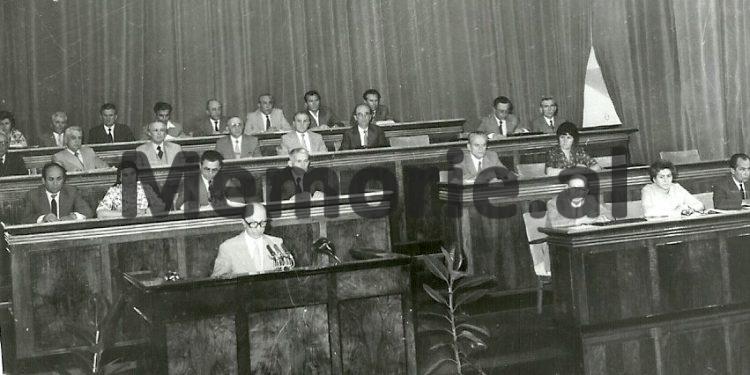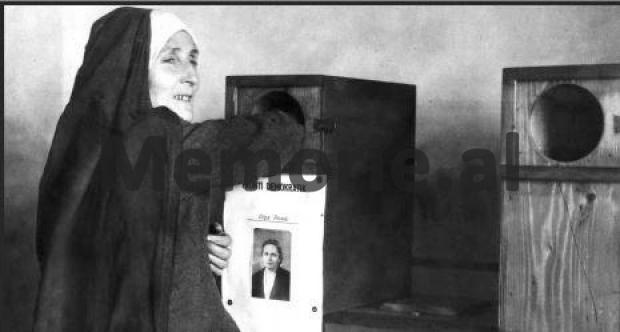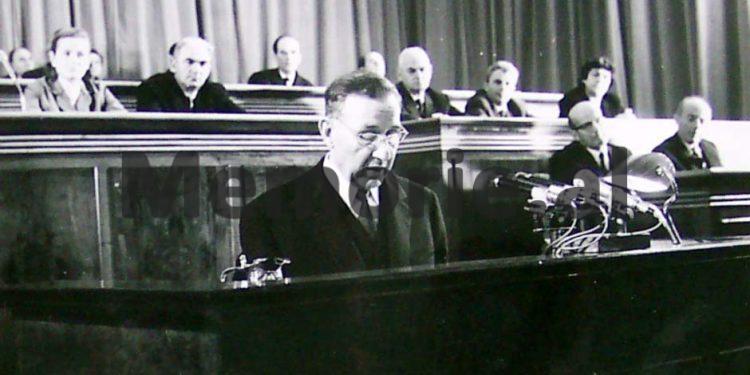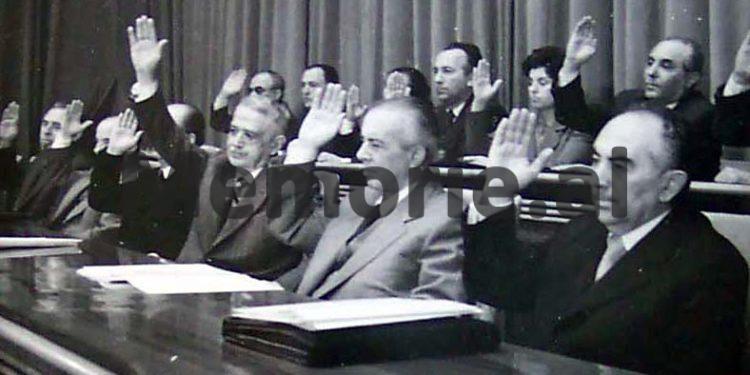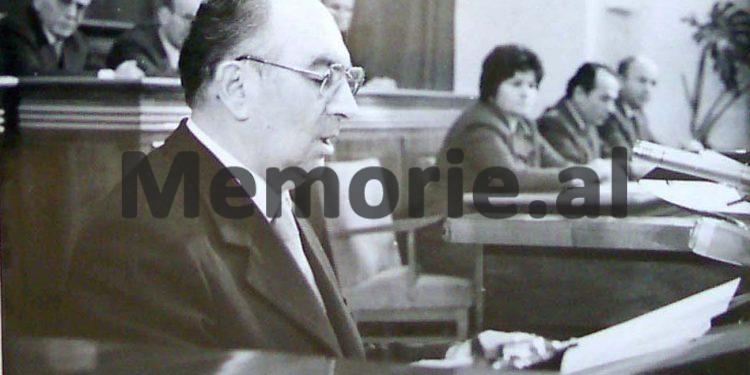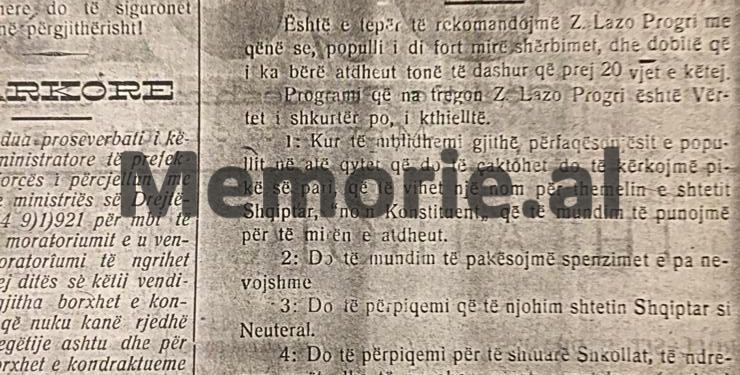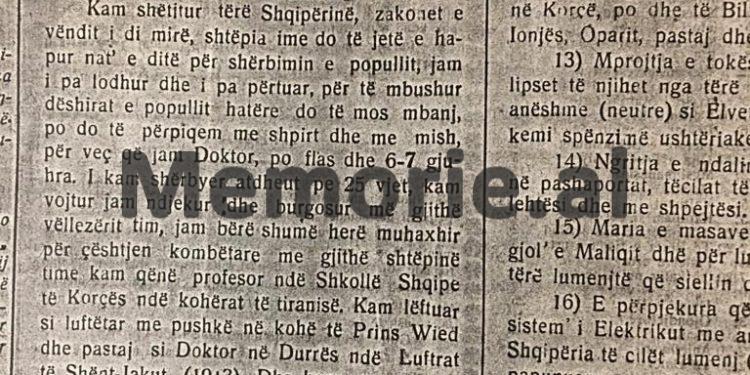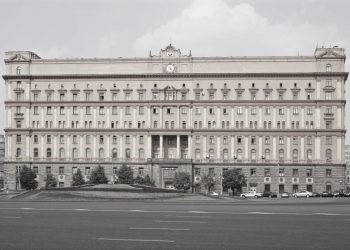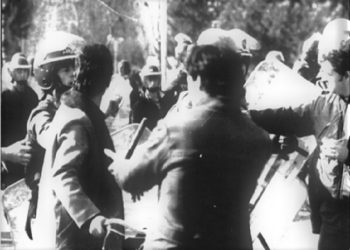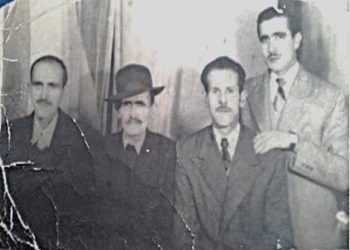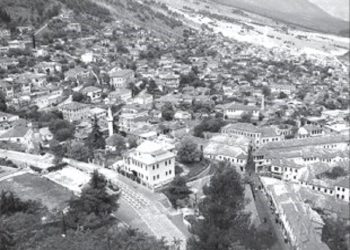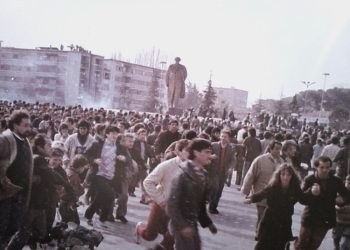Dashnor Kaloçi
Memorie.al publishes the unknown history of the conduct of elections and voting in Albania, from the time when it was voted for the Turkish Parliament where they were elected and represented their country as MPs, Ismail Qemali, Esat Pashtë Toptani, Nexhip Draga, Rexhep Pasha Mati, etc. ., that of 1921-’24, where some parties competed and the elections had a democratic character as in Western countries, the period of the Zog Monarchy where party pluralism was not allowed, and that of the communist regime of Enver Hoxha, where there were no elections but only voting, as from December 2, ’45 until the end of the ’80s, in the “parliamentary elections” participated only the candidates of the Democratic Front led by the Communist Party of the Albanian Labor Party as it was called in early ’50s
The history of the parliamentary elections in Albania, or more precisely the election attempts, have their origins from the time of the Ottoman rule when Albania was part of the Turkish Empire. Abdyl Frashëri was one of the first Albanian deputies to be elected to the first Parliament of Turkey, which opened in December 1877. But that parliament did not last long as it was overthrown by the Sultan himself due to the start of the Russo-Turkish War. After the dissolution of Turkey’s first parliament, there were several other attempts at elections, but all failed for various reasons. The first and regular elections in Albania were held only in 1908 when the Young Turks came to power in Turkey. Those elections were not direct, but by representation, or as they are otherwise known by the second voter. The first parliament of Turkey was opened on December 10, 1908, and out of 266 deputies, 27 of them were Albanians, elected in the four vilayets of Albania. At that time, members of the “Unity-Progress” Committee in Turkey, which included many Albanians, split and were grouped into three political groups. The first grouping was Bashkim-Përparim (Turkish-Macedonian party) with 164 deputies, of which 130 were Turks, 5 Arabs, 1 Greek, and 15 Albanians, led by Hasan Prishtina, a Kosovo MP. In the second group called: Bashkimi-Liberal, (Greek-Albanian party), which included 45 deputies, there were 12 Albanians who were led by Ismail Qemali. Among the other Albanian deputies that the Turkish Parliament had at that time were Esad Pasha Toptani, Nexhip Draga, Rexhep Pasha Mati, etc. After 1908 there were several other elections, where Albanians continued to vote for their representatives in the Turkish Parliament, and that lasted until 1912 when independence was declared.
Elections from 1921 to 1939
The first parliamentary elections in Albania took place in the spring of 1921, as until then they had not been held due to the First World War, which included Albania. The first Albanian parliament was opened on April 21 of that year and the first building of the Albanian parliament was where the Academy of Sciences is today and 76 deputies participated in that parliament, who was elected after a relatively regular process by the nine prefectures. of the country, such as Berat, Durrës, Elbasan, Gjirokastra, Korça, Kosovo, Shkodra, Vlora and that of the Albanian Colony of the USA. As in the past, those elections were held with a system of representation, or as they are otherwise known, with a ‘second voter’, where based on territorial division, representatives of each province had the right to elect their own deputy. At that time, for the first time, the candidates started campaigning, which in many cases was followed by various newspapers that were published at that time in several cities in Albania. Among the most famous MPs who won the right to be represented in that parliament were: Ahmet Zogu, Fan Noli, Padre Gjergj Fishta, Dom Ndre Mjeda, Luigj Gurakuqi, Hil Mosi, Hoxha Kadria, Ali Këlcyra, Hasan Prishtina, Mustafa Kruja, Pandeli Vangjeli, Sejfi Vllamasi, Sulejman Delvina, etc. From 1921 to ’24 there were several other parliamentary elections and that period of time (excluding the one after the 1990s) has entered the history of Albania as the period when the cheapest and most democratic elections took place… In the elections for the first Albanian parliament, several parties and associations competed, such as the Progressive Party, the “Union” Society, the People’s Party, etc., and most of the candidates who won the right to represent the Parliament (28 deputies) were members of People’s Party led by Fan Noli. Ahmet Zogu, Ali Këlcyra, Qazim Kokoshi, Pandeli Cale, Bahri Omari, Sejfi Vllamasi, Bajram Fevzi, etc. also belonged to that political group. Subsequently, this political formation, where most of them were from the “Krahu Kombëtar” society, split and some of its deputies joined other opposing political groups. After June 1924, when the coup took place by fanatical forces, or the “June Revolution”, as it is otherwise known from the historiography of the communist regime of Enver Hoxha, Albanian politicians were grouped into two new parties that were formed in it. time. They were the Democratic-National Party led by Bahri Omar and the Democratic-Radical Party, led by Agjah Libohova. These political groups exercised their activity until December 24 of that year when Ahmet Zogu returned to Albania. Unlike the elections that took place in the period 1921-’24, those held in the 15 years of Zog’s Monarchy (1925-1939) were not multi-party, as Zog did not allow party pluralism. During that period, elections were held once every five years and more than one candidate ran in different constituencies. Although it had one of the most advanced constitutions of the time, and by all standards of Western countries, Zog’s monarchical system lacked party pluralism. After the occupation of the country by fascist Italy in April ’39 until the end of ’44, there were no parliamentary elections in Albania.
The first election, December 2, 1945, with balls
Enver Hoxha’s communist government, which came to power in late November 1944, held parliamentary elections a year later, on December 2, 1945. Setting that date for the election was seen as more appropriate by the communist government for the internal situation it was going through, as almost, the entire ’45 year passed with numerous political trials, where most were executed or imprisoned. of former politicians and high-ranking officials of all Albanian governments, from that of Ismail Qemali to the most recent one, under the German occupation of the country. From the beginning of November of that year, the Democratic Front led by Enver Hoxha, which was in fact the Communist Party itself, through the newspaper Bashkimi and Radio Tirana, officially announced the opening of the electronic campaign, setting December 2 as the election date. The election bill was approved by the National Liberation Anti-Fascist Council (KANÇ) and there were heated debates during the adoption of that law. Many members of the Front leadership, KANÇ who were also candidates for MPs, such as Shefqet Beja, Riza Dani, Suat Asllani, Sami Qeribashi, Selaudin Toto, etc., opposed the election law, as he was ‘de facto’ alone. with Front candidates and left no way to compete with other candidates outside of him, not to mention a real opposition. At that meeting, Gjergj Kokoshi (Minister of Education), who was also one of the strongest opponents of the bill, protested and left the Front and declared his candidacy as an independent, is the only candidate outside the Throne. in the elections of December 2, ’45. In fact, the well-known lawyer, Koço Dilo, tried to emerge as an independent candidate, but after pressure from the State Security, he withdrew his candidacy. In the elections of December 2, 1945, the voting system was established for the first time for all citizens who had reached the age and not with representation with a second voter, as had been done until then. Their other special feature was that for the first time in the entire history of the elections in Albania, two women were running. They were Olga Plumbi and Liri Gega. Although in terms of content those choices differed greatly from those held in the years of the Zog Monarchy, they did not change at all in form. Voting took place with grains and in each polling station there were two ballot boxes, one for Front candidates and one for those outside it. Those who voted against the Front candidates (opponents of the communist regime) were easily understood by the relevant commission, which consisted only of Front representatives, as the grain they threw into the box jumped because it was empty. Prior to the passage of the election law, the US and British governments, through their representatives in Tirana, summoned Generals Jakobs and Hoxhson to Enver to hold free parliamentary elections, making it a key condition for the recognition of the Albanian government by their countries… The Americans formally asked Enver again on November 10, 1945, through Harry Fultz and Hoxhson, who reiterated to him that in exchange for diplomatic missions, the Albanian government should ensure free elections and covert, free press and election monitoring by foreign journalists. Of all the demands presented to Enver Hoxha by the Anglo-American representatives, he allowed only the participation of some foreign journalists in the December 2 elections, for whom, as Prime Minister, he gave a press conference at the Hotel. Dajti ”, where his government was based. A few days after the election process, the Central Election Commission, chaired by President Andrea Sahatçi and Secretary Andrea Nathanaili, with members Vasil Avrami, Halim Budo, Spiro Stringa, Faik Dishnica, and Xhavit Gjata, announced the voting results. Thus, according to this commission, out of 603,566 voters who were registered in the voting lists, 543,354 participated in the voting, which constituted 90.02%. Of these voters, 506,319 voted for the Democratic Front, and 36,758 votes were in the non-candidate box (i.e. against) while 277 votes were cast in the box of an independent candidate. In conclusion, 93.18% voted for the Front candidates against them, 6.77% and 00.7% for the independent candidate. Following the publication of these results, the Democratic Front officially announced the won elections, and a Constituent Assembly was elected by the deputies, which about 40 days later, on January 11, 1945, declared Albania a People’s Republic.
Out of 17,564 voters in Enver’s constituency in Tirana, 2,151 did not vote
At the end of the first post-war elections held on December 2, 1945, which in fact were not free elections, as there were no candidates outside the Democratic Front, it turned out that the Prime Minister of the Albanian government, Colonel-General Enver Hoxha, who at the same time he held the positions of Chairman of the Presidency of the Democratic Front, Minister of Foreign Affairs and Defense, had received more votes against, than all other candidates. In fact, Enver came in second on the list of 108 candidates of the Democratic Front for votes against, as in the first place with more votes against, was Olga Plumbi, which out of 18,242 voters in her area in Tirana, had received 2,269 votes against, While Enver Hoxha from 17,564 voters who had his constituency in Tirana, 2,151 voters had voted against him. These results, after being made public by the Central Election Commission chaired by President Andrea Sahatçi and Secretary Andrea Nathanaili, were also published in the newspaper Bashkimi, a body of the Democratic Front led by the Communist Party led by Enver Hoxha.
Elections from the ’45s to the 1990s
With the elections of December 2, 1945, the communist government of Tirana, led by Enver Hoxha, marked the end of hopes for the holding of free and democratic elections with a legal opposition. Just a few months after those elections, a large number of those candidates or MPs who had raised their voices for free elections were arrested and brought to trial, 17 of them being executed. Enver Hoxha did not allow party pluralism and all the elections that took place from 1945 until the end of the ’80s, were only with the candidates of the Democratic Front, under whose mask the Communist Party or the ALP was hidden. as it was called after ’49. But even though he did not allow the opposition, Enver Hoxha’s communist regime continued the violence by exercising it against his deputies in the Democratic Front. So, after ’45 until the end of the ’80s, many deputies of the People’s Assembly were imprisoned or executed, such as Kadri Hoxha, Liri Gega, Dali Ndreu, Tuk Jakova, Bedri Spahiu, Haxhi Hajdari, Fadil Paçrami, Todi Lubonja, Avdyl Këllezi, Koço Theodhosi, Dashnor Mamaqi, Kiço Ngjela, Beqir Balluku, Petrit Dume, Hito Çako, Rraman Parllaku, Kadri Hazbiu, etc., without mentioning here many others who were forced to commit suicide. Throughout this period, although the communist regime widely propagated that voting was free, anyone who did not run in the election or who was alleged to have voted against Front candidates had major consequences up to imprisonment. Although few, during the 45 years of the communist regime, there have been cases when different people have never wanted to vote and have never voted, such as Hamit Gjylbegu and Zija Muka from Shkodra, who were also sentenced to prison for this reason. There have been many other cases in which various people have used election day to put pressure on them not to vote, in order to resolve any injustice done to them before, such as housing, granting study rights. for children, employment problems, etc. All voting from the ’45s to the late’ 80s was done with only one candidate for each constituency.
Voting race with folk music
The ALP considered the election campaigns for the People’s Assembly that took place once every four years as “the biggest political action” and made available all its propaganda arsenal, with radio, newspapers, decorations, etc. One week before the elections in the polling stations, the representatives of the Democratic Front became deputies and on the day of the elections they opened at 6 in the morning and closed at 18 in the afternoon. Usually, the opening of voting was done with folk music by amateur or professional orchestrators who went to every polling station, dropped their instruments, and there the voters sang and danced for the Party and comrade Enver Hoxha. Representatives of the Front, who were also the most fanatical communists, went from house to house, making propaganda that voters should go to the polls as soon as possible so that the voting would end as soon as possible. Throughout the voting day, Radio Tirana and the Albanian Television gave the percentages of participation in the voting for all the districts of the country, which were in competition with each other, as to who would finish them as soon as possible. Although there was a secret room in all the polling stations, no one dared to enter with the ballot paper, but after the ballot paper was taken, it was immediately thrown in the box, without even having the courage to read it! If you entered the secret room, it would mean that you would vote against the Front candidates, which was a heresy. But there were plenty of cases where different voters came in and took out a visa to the Front candidate, voting against or removing the invalid ballot when he did not write any other name. This was learned at the end of the voting when they were given and their results which were communicated through radio, television, and press. Throughout the history of voting (not elections, as there were only votes in that period) from the ’45s to the late’ 80s, 100% turnout was never achieved and 100% were never voted. % for the candidates of the Democratic Front led by the ALP./Memorie.al




